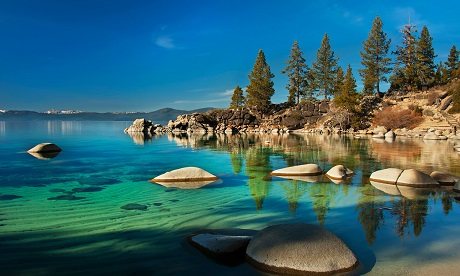California’s Catholic bishops have released an ecological pastoral statement about threats to the state’s many ecosystems.
The bishops, who lead nearly 11 million Catholics, 28% of the population, are inviting the church community and all Californians to contribute to the state’s “ecological well-being”.
Their 19-page pastoral statement, entitled “God Calls Us All to Care for Our Common Home,” was released on Tuesday – the fourth anniversary of Pope Francis’ landmark social encyclical on the environment, Laudato Si’.
Their pastoral statement reflects on “the rich, natural beauty of California.
“Our state’s great beauty and bounty has stirred the spirits of generations to act on behalf of environmental protection and for the justice that ensures the integrity of the land and its people,” they say.
“For these reasons, the Bishops of California find it both fitting and necessary to reflect on Pope Francis’ encyclical Laudato Si’ and its message of care for God’s creation.”
They point out how its history has witnessed periods when people have cared for and defended its diverse ecosystems, while at other times have exploited its land, resources and inhabitants.
Their statement then offers a series of action steps for the state’s residents to better care for the earth.
They also have pledged themselves to integrate Laudato Si’ more fully into liturgies, explore expanded renewable energy and energy efficiency projects and begin a discussion about the possibility for divestment from fossil fuels.
The bishops say besides animating and energising “the implementation in California of what Laudato Si’ calls us to do” they also want to “offer a dynamic teaching and evangelisation tool for our Catholic faith community and beyond, especially for young people.”
Over the coming months the plan is to produce faith formation and study guides for small group discussions and to encourage educators to find ways to introduce the statement into various programmes.
They also plan to roll out a series of homily guides over the next year.
In addition, individual dioceses also are exploring their own distribution efforts, including through various environmental ministries.
“What we wanted to do with this version is bring it down even closer to where people live, so that it was not something that people could just shrug off,” says a spokesman for the committee that helped develop the document.
Source
Additional readingNews category: World.




